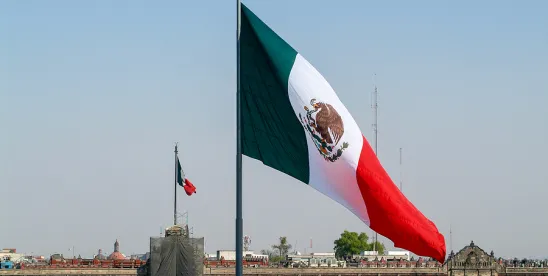As the dust settles from the elections in Mexico, a new set of political decisions that have transpired in constitutional amendments pose new and major challenges for local and foreign investors with current or future interest in the country.
Energy and Infrastructure
As announced by President Sheinbaum, specialized government agencies such as the Energy Regulatory Commission, National Hydrocarbon Commission, Antitrust Commission, and Federal Telecommunications Institute will be phased out. Investors with current projects should consider alternatives in the event their investments are affected or subject to inflexible new requirements. For foreign investors, it is worth conducting a preventive analysis of the interpretation of fair and equitable treatment (FET) under the multiple investment treaties to which Mexico is a party to since FET standards are often left undefined. Despite the differences in the wording of FET provisions across treaties, especially bilateral investment treaties, there appears to be a general consensus on the core content of the FET standards that include: (1) protection afforded to the legitimate expectations of the investor; (2) protection against arbitrary or discriminatory treatment; and (3) protection against a host state’s denial of justice to the investor.
The phasing out of the specialized government agencies mentioned above does not necessarily equate to lack of new opportunities in the energy and critical infrastructure sectors. The current deficit in the federal government budget and the imminent need of fresh investment by private companies should provide investment opportunities. However, investors should consider in their financing risks matrixes the potential cost of a dispute as well as walk away rights.
Specialized and High Investment Projects
As in the case of specialized governmental agencies, Congress approved a judicial reform which allows for federal judges to be elected by popular vote, eliminating the need to have a judicial career or experience other than five years practicing law and two letters of recommendation attesting to the candidates’ qualifications. The reform will affect trust by local and foreign investors in the judicial system already affected by a sizeable backlog of cases and further impacted by judges no longer requiring experience on the bench. Considering that specialized and high investment projects normally require subject matter expertise and quick decisions and turn arounds, it is advisable to revisit current agreements and business arrangements to assess which ones should be subject to arbitration and which ones to mediation, as well as interim remedies in case a dispute arises to ensure feasibility of the project.
To date, Mexican federal courts have upheld and defended the validity of arbitral awards, as well as settlements reached in mediation, to the extent that certain formalities of due process are abided by the parties.






 />i
/>i

